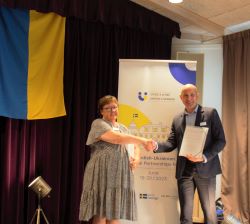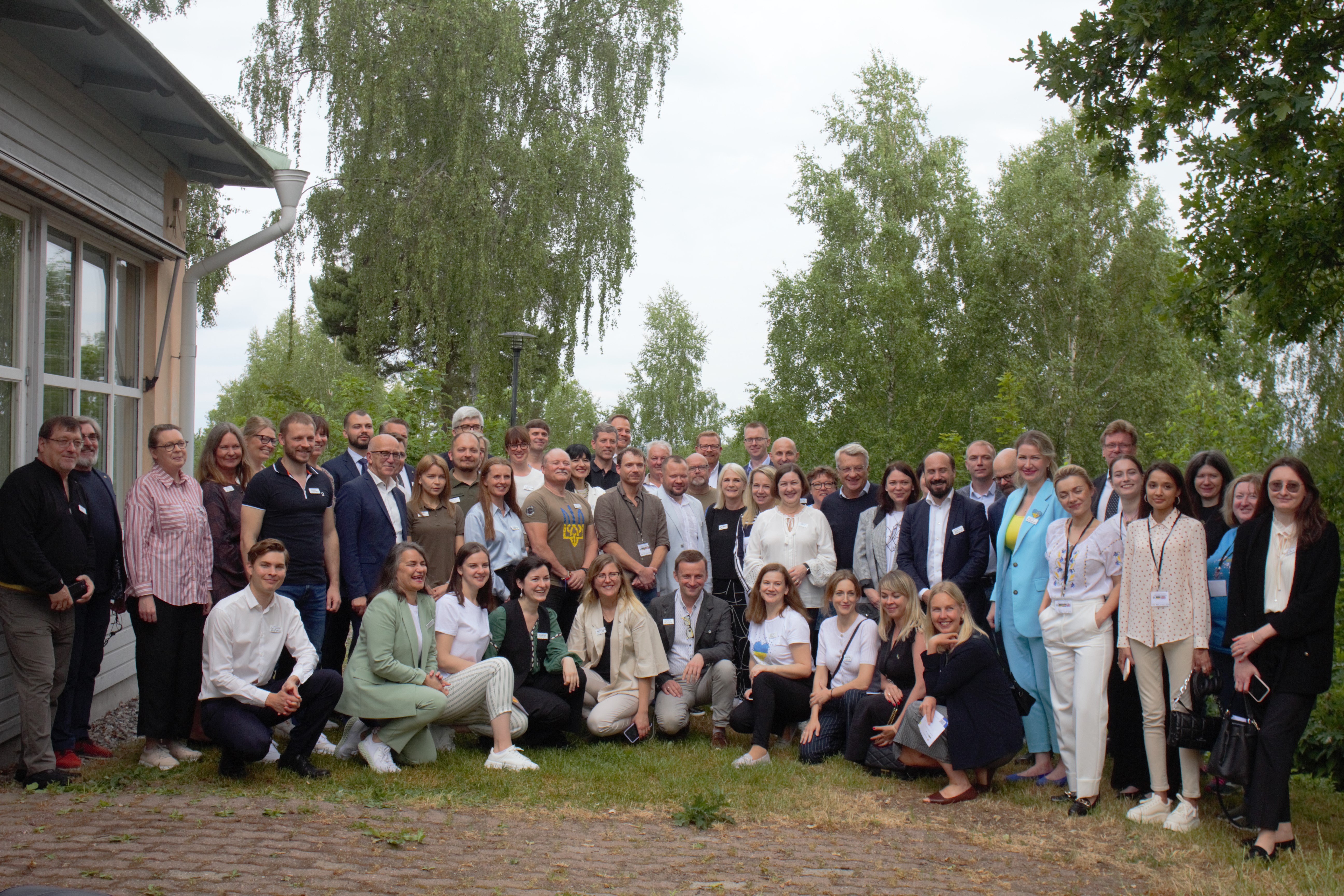Swedish and Ukrainian municipalities meet to establish new partnerships
On June 19-20 the Swedish-Ukrainian Municipal Partnership Forum took place north of Stockholm. 11 Ukrainian municipalities met with 11 Swedish municipalities to explore future cooperation in the format of bilateral partnerships.

Lillemor Lundgren, Chairman of the municipal council of Vännäs and Dmytro Diktiar, Mayor of Slobzhanske
SALAR (SKR) invited Swedish municipalities to participate in the conference and the Chairman of SALAR (SKR), Anders Henriksson, welcomed the participants in his opening remarks. The conference was part of the work of SALAR International, aimed at supporting Ukrainian democracy, decentralisation and local level governance and was co-organized with United4Ukraine. Ukrainian municipalities have played a crucial role in Ukraine’s efforts to defend itself in the face of Russian aggression, and by partnering with Swedish counterparts they will have one more way to drive their work forward and develop. It is also a chance for Swedish municipalities to learn from their Ukrainian partners.
At the conference Ukrainian and Swedish municipalities had the opportunity to meet one another and to explore the possible areas of cooperation. Areas that were discussed ranged from crisis management and resilience to sustainable development and waste management. Three pairs of municipalities decided to take the first step in their bilateral cooperation and signed letters of intent to formalise their partnerships. Vännäs municipality and Slobozhanske municipality signed such an agreement and have agreed to cooperate in the fields of waste management, education and around investments in agriculture. Many more of the participating municipalities are on track to formalise their own partnerships and create a mutually beneficial cooperation, based on local needs and competencies.
During the conference, the Swedish Minister of International Development Cooperation and Foreign Trade, Johan Forsell, reiterated the strong and enduring Swedish support for Ukraine. He spoke about the importance of decentralisation as a tool for strengthening the democratic development in Ukraine and to increase its resilience by improving local level governance. In the ministers own words “Every [Swedish] municipality should have a partner in Ukraine”. The minister also emphasised the role of local actors as well as business interests in the work for recovery and reconstruction in Ukraine.
Other speakers from organisations such as the Swedish Institute (SI), United4Ukraine and the European Commission informed the participants about available sources of funding for projects within the framework of municipal partnerships. Having received inspiration and knowledge from the speakers as well as having the experience of meeting face to face – the municipalities are better equipped to form fruitful bilateral partnerships.
Overall, the experiences of the municipalities were overwhelmingly positive. As expressed by a participant from a Swedish municipality: “This [conference] has exceeded our expectations. We are very happy about establishing a partnership with a Ukrainian municipality and we look forward to develop it through interesting projects.” And in the words of a participant from a Ukrainian municipality: “I am thankful for the opportunity to meet with Swedish municipalities, we have a lot of similarities and we’re hoping for tangible and fruitful cooperation moving forward.”
As the work for reconstruction and recovery of Ukraine is picking up momentum and the scale of the challenges are becoming apparent – there is a vital need to engage actors on all levels. For the efforts to be as successful and efficient as possible it is of great importance to involve local level actors and municipalities in Ukraine. Moving forward, the work of SALAR International maintains the focus on a decentralised and bottom up perspective in its efforts to help Ukraine develop.

Representatives from Ukrainian and Swedish municipalities
